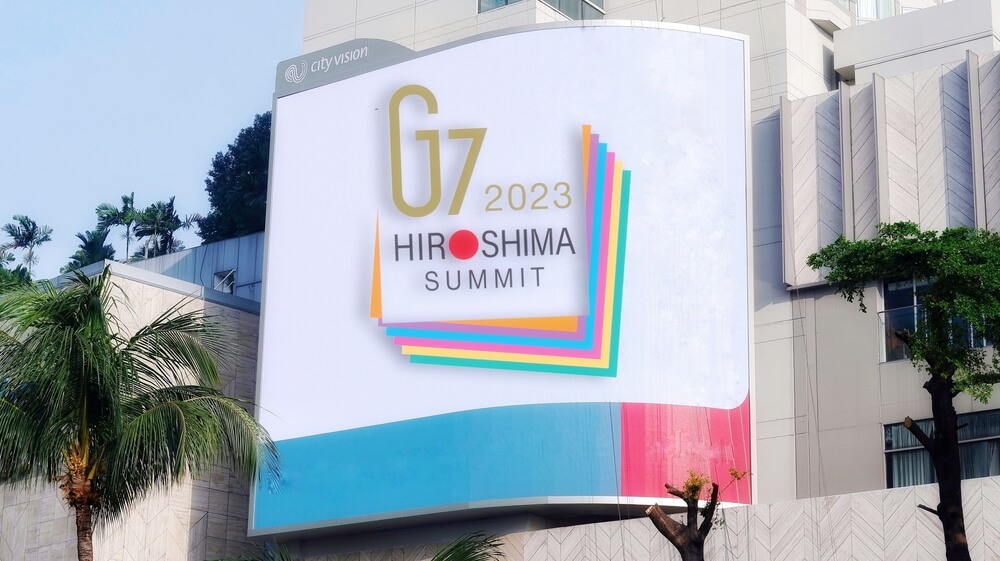One of the more significant motives for expanding the BRICS was creating a stronger rivalry with the G7 and an economic and political alternative to the 7 highly developed countries.
China, followed by Russia, was the biggest proponent of BRICS expansion at the alliance's summit in South Africa last August. China succeeded, and as of 10 days ago, the membership of BRICS was doubled, with full membership of Saudi Arabia, Iran, UAE, Ethiopia and Egypt.
Does this new situation in the global group of developing economies from January 1 change the balance of power with the G7 in favour of the expanded BRICS?
The principal engine of expansion was China. It wanted to expand its global political and economic relations concept to win over as many influential states as possible, as evenly distributed among the world's regions.
Argentina's withdrawal from membership after Javier Milei, an advocate of his country's alliance with the US and the dollarization of the national economy, took over the presidency on December 10, and cast a shadow on the enlargement.
Increased economic strength
However, as many as 3 Middle Eastern oil and gas giants and 2 influential African states became new members of BRICS. Their economic parameters increased the overall size of BRICS. The joint GDP increased by about $2.5 trillion, for example. This confirmed the supremacy compared to the G7 according to that criterion (32% against 30% of the world GDP).
The membership of BRICS has doubled, but the new members increased the total GDP by only 9%
The membership of BRICS has doubled, but the new members increased the total GDP by only 9%. China, whose economy is 2.5 times larger than all the others combined, remained the largest and most influential member of the alliance.
However, the arrival of the Middle Eastern oil giants will significantly increase the potential of BRICS in this respect, from the current participation of about 18% in global oil production to about 40%.
The expansion of BRICS from January 1 still made economic sense despite the increasing economic parameters in the bloc remaining disproportionately small to the number of newly admitted members.
China's political motives
Economic strengthening was not the primary motive for the expansion that took place on January 1. In this respect, there was little indication of BRICS's ambitions to become a more serious rival of the G7 through enlargement.
The expansion of the block of large developing economies has political motives, which stems from the strategy of China as the dominant member of BRICS and the biggest proponent of its expansion.
In this respect, raising the capacity of BRICS to become a stronger alternative to the G7 is even less convincing than the economic aspects.
Changing the model of global economic and political relations, that is, the dominance of the West, is the offer of Xi's China to the so-called "Global South", given that Beijing wants to be its leader.
 With Iran's entry into BRICS, this alliance has shown antagonism towards the group of 7 developed Western democracies
With Iran's entry into BRICS, this alliance has shown antagonism towards the group of 7 developed Western democracies
China sees the expansion of BRICS as progress in this respect, as the bloc shows its attractiveness and promises new waves of expansion. But does this form bring new substance to a group that desires to rival the G7?
With Iran's entry into BRICS, which was supported the most by China and Russia, this alliance has shown antagonism towards the group of 7 developed Western democracies.
With Iran’s accession, BRICS now has 2 large and influential members under heavy sanctions, designed to the greatest extent at the G7 level. Even though they have accepted Iran's membership, some BRICS members, such as India and Brazil, still do not want to confront the G7 members, primarily the US, as their strategic partner.
Enlargement deepened the differences
The differences in interests among the BRICS members have only been deepened by this year's expansion, not reduced by any means. With numerous disagreements between China and India, including border disputes, the new members multiply the lines of conflict instead of mitigating them.
While the G7 is a grouping of developed democracies based on free markets, political freedoms and human rights, BRICS does not have a value framework that its members, whether new or old, share as a basis for their association.
There is a significant dividing line between the G7 and BRICS regarding the perception of corruption, civil and political freedoms and the rule of law, reflected in crucial economic and social parameters
Autocracies, controlled economies, and repressive regimes that severely violate human rights dominate this bloc. There is a significant dividing line between the G7 and BRICS regarding the perception of corruption, civil and political freedoms and the rule of law, reflected in crucial economic and social parameters.
For example, life expectancy at birth in 2022 is higher in 6 out of 7 G7 members than in all BRICS members so far. On the other hand, economic inequality is far more pronounced in the BRICS than in the G7.
1% in the G7 holds about 26% of the wealth of those economies, while in 5 current BRICS members, 1% owns as much as 43% of the wealth of their economies, and in China, more than 50%.
The disparity in economic strength within BRICS and significant differences in the interests of its members, makes it ineffective in realising the idea of being a powerful counterpart to the G7 over time.
The enlargement will strengthen the alliance of the autocracies (China, Russia and Iran) and tend to gather the rest of the bloc around its strategy of confrontation with the West.
However, such a development could hardly be acceptable for all the remaining members in the long term, given their broad range of interests with the G7 members.